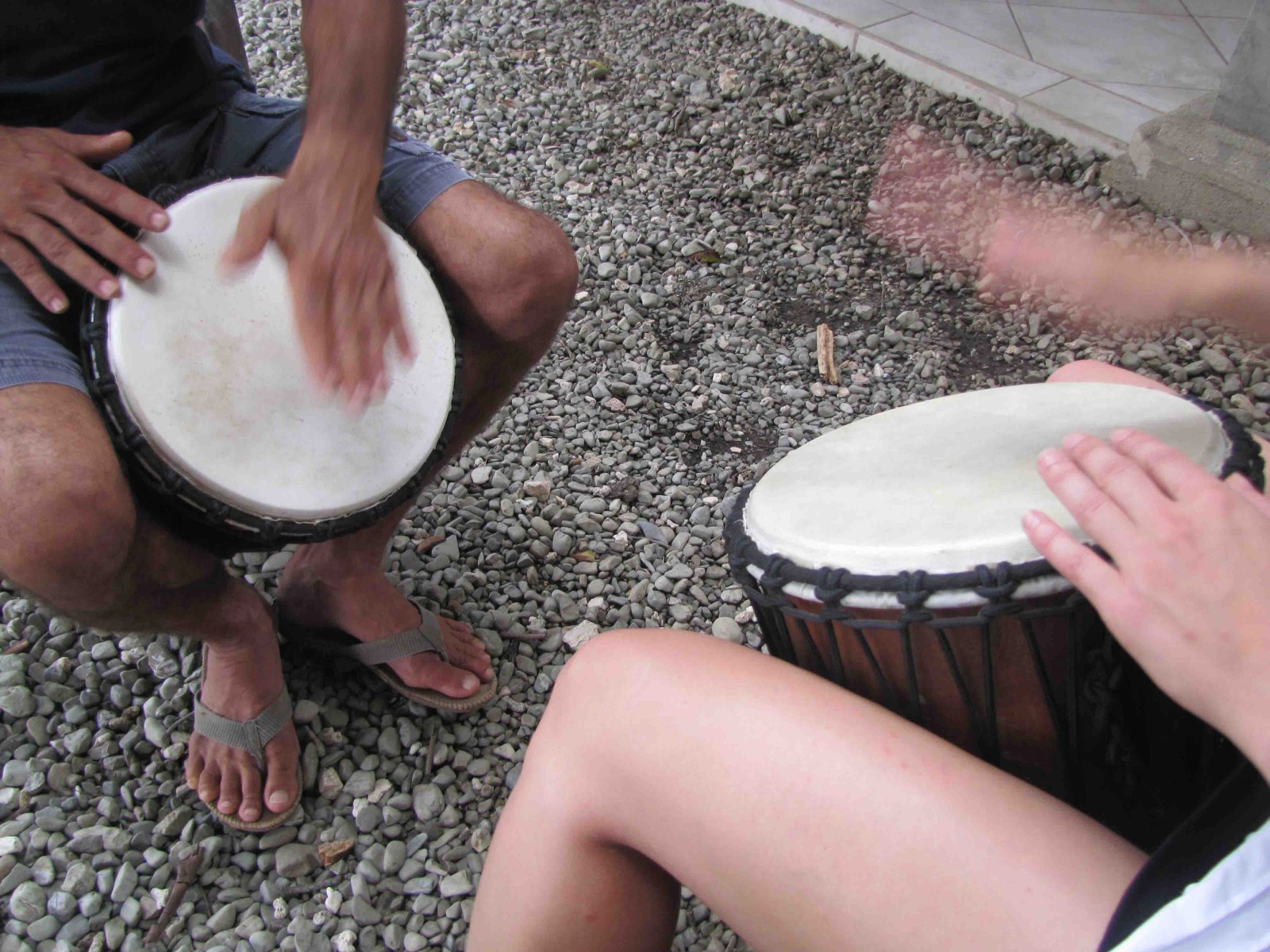
Kun kun kan kan king king.
With this basic sequence of two bass, two medium and two high beats, we are introduced to the three basic sounds of the djembe drum during our first African drumming class with our instructor Christophe Chaix, originally from France but now residing in Nosara.
At first my hands stick a little to the drum each time I hit it, killing the vibration, and Christophe explains to me that my hands should float like hammers… I don’t know how hammers float but with a little more practice I improve although my fingers start to hurt and turn a little red and swollen. This is normal, Chaix assures me, as the hands become more like hammers. He says drummers in Africa tend to have very thick hands.
We begin practicing different rhythms. It takes a lot of focus, and several times we lose our rhythm, but then we listen to the other and join in again. At one point, when one of us loses the beat, Chaix laughs and exclaims, “I love it! The brain goes like whoa.”
Coordination between your brain and your hands is a major aspect of drumming. For this reason, Chaix says that learning to drum is great for children so they develop better coordination, but they should be at least 8 to 10 years old so they have enough attention span to start learning to play the drums.
Chaix himself was 8 when he got his first drum. At first, he made a lot of noise around the house, annoying his family, but drumming became part of who he is. “It’s a good way of calming. We always have to bang on something. The drum takes that energy,” he observed.
At present he has at least 10 drums. The djembe drums, which he has made in Bali, are made of wood and goatskin. To play them, one must sit up straight, place the drum between your knees and angle it so your hands can make good contact with the drum. Once you find the beat and gain some confidence, you find yourself almost dancing along with the rhythm and accelerating the pace, that is, until you lose the beat again.
“It’s very powerful stuff,” notes Anat Aronowicz as we finish our lesson. She is a Canadian who decided to take drum lessons while here on vacation. “It’s inspiring that you can actually pull off a beat when you didn’t think you had one.”
Chaix offers African drum lessons for $10 per person per hour. To schedule a session, call 8848-8279.







Comments